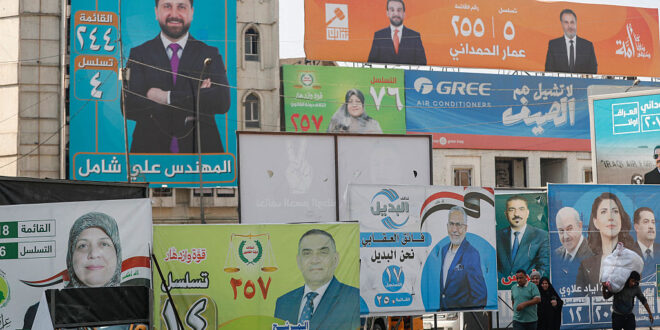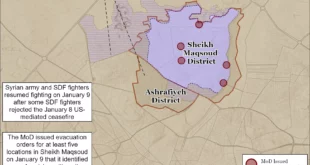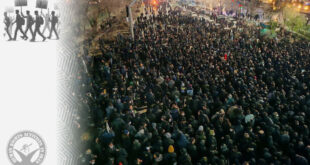Iraq’s parliamentary elections are scheduled for November 11, but voters aren’t holding their breath for change. Allegations of pervasive vote buying and reliance on patronage systems already taint the election. These practices empower elite politicians, instead of bringing about transformation.
But while Iraqis don’t expect change, international players are watching the election closely.
The new government in Baghdad will not be able to avoid competition between America and Iran for influence. In Iraq’s sectarian politics, Kurdish, Shiite, and Sunni elements will elect their representatives, but Shiite leadership will define the government’s orientation to the United States and Iran. Washington won’t find an eager partner, but it may find itself working with a prime minister it can induce to cooperate, a loyal ally of Tehran, or, more likely, someone in between.
Coordination Framework Dominates the Shiite Segment
The Coordination Framework (CF) — the current Shiite governing coalition comprised of many parties affiliated with Iran and Iran-backed militias — will likely have sufficient support to return to power. The CF formed in 2021 to counter prominent Shiite cleric and politician Muqtada al-Sadr, an Iraqi nationalist who, though no friend of America, opposes Iran’s domination. Sadr’s party won the most votes in 2021, but he withdrew from politics following a contentious and ultimately unsuccessful attempt to form a government. His exit paved the way for the CF to monopolize the Shiite landscape, Iraq’s largest sectarian bloc.
Performance of Shiite Parties Will Affect Government Formation
Constituent members of the CF are running on separate electoral lists to maximize votes and assess the relative strength of each element of the coalition, but reuniting to form a government. Despite the claim that this split is purely a tactical decision, disagreements among members of the CF over competing American and Iranian influence and personal grievances are increasingly apparent. Esmail Qaani, commander of Iran’s Islamic Revolutionary Guards Corps — Quds Force, has repeatedly traveled to Baghdad in 2025 to encourage cooperation.
Intra-CF tension will define government formation. The frontrunner is current Prime Minister Mohammad Shia al-Sudani, a member of the CF eager to secure a second term. During his first term, his popularity reached record highs for an Iraqi PM. While his party is favored to win the most votes, powerful elements of the CF, which backed Sudani for prime minister in 2022, oppose a second term over political differences and concerns that another four years will give him too much power. Sudani has attempted to maintain balance between Washington and Tehran, but his openness to work with Washington at all has frustrated Iran’s most loyal partners.
Low Turnout Expected
Voter turnout in Iraq’s parliamentary elections has been falling since 2005. In 2021, the last parliamentary elections, turnout was just over 41 percent. According to Iraq’s Independent High Electoral Commission (IHEC), nearly 30 million Iraqis are eligible to vote in this election, yet only 21.4 million have registered to vote. Iraq analysts and news sites anticipate turnout below 40 percent among those who have registered, likely reducing the perceived legitimacy of the next government.
Adding to the turnout troubles, Sadr has instructed his supporters to boycott the upcoming election to protest corruption in the government.
The U.S. Will Need Specific Policy Objectives for the New Iraqi Government
So far, President Donald Trump’s administration has shared big picture goals for Iraq that include disarming Tehran-backed militias and gaining energy independence from Iran.
If Washington’s counterparts in Baghdad can be convinced to cooperate, the administration will need to outline policies with measurable benchmarks for the new government. Militia disarmament plans, for example, should include a timeline and specifics for incorporation into security organizations loyal to the Iraqi government or total demobilization. The United States should be under no illusion that this will be an easy feat. Additionally, the White House should support investment in Iraq’s energy sector. This should come with a timeline for Iraq to cease importing Iranian gas.
However, if Washington finds itself working with a staunch ally of Tehran, the administration will need to escalate pressure on Baghdad to counter Iranian influence.
 Eurasia Press & News
Eurasia Press & News



